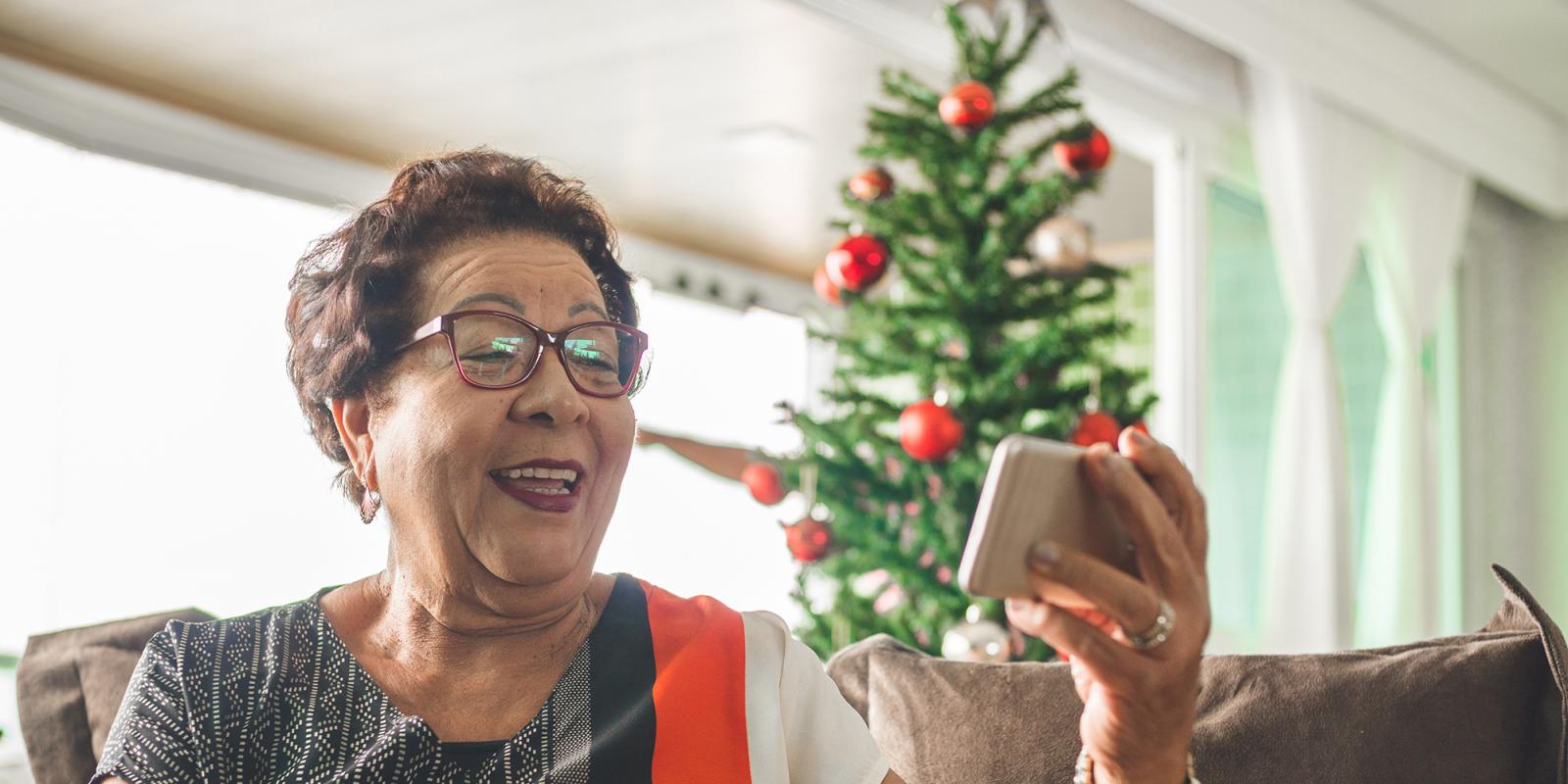The holidays will differ this year due to COVID-19. Families more than likely will not gather to celebrate, potentially creating major consequences for aging loved ones and their adult children. These consequences may spell another pandemic-related crisis impacting older adults.
Traditionally, the winter holiday season brings adult children together with their older loved ones for extended periods of time. In many cases, it’s the one time of year when families gather. But this year will differ drastically. The research firm Destination Analysts expects only 28 percent of Americans to travel over the holidays, compared to the 53 percent that did last year.
The CDC is urging careful consideration of holiday plans, and we are seeing increasing media coverage around holiday travel, including articles like this from NPR: “Thanksgiving in the Time of COVID-19 to Grandmother’s House or No?”
Family Gatherings Present an Opportunity to Assess Elders
Family gatherings often provide an opportunity for adult children to assess their loved ones’ physical and cognitive abilities, and to flag potential declines that may affect safety. SYNERGY HomeCare typically sees an increase of inbound calls and digital requests in January, after families have celebrated the holidays.
This year, without the benefit of in-person visits, adult children may miss important cues that their loved ones are declining. Those in aging services need to work together to help families overcome these challenges that can affect the health and safety of older adults.
SYNERGY recommends our partners in the industry reach out to adult children in their communities and share an approach we call “benevolent probing.” In this age of Zoom and FaceTime calls, adult children should learn how to determine if their parents are functioning well and what to do if a decline seems evident.
Benevolent probing is a combination of careful observation and considered conversation designed to gather information in a gentle, non-threatening way to gauge a loved one’s condition, during virtual or physical gatherings. Older adults can fiercely guard their independence, so this technique is intended to minimize any perceived threat to that independence. When speaking with your “sphere of influence,” stress the importance of this method for uncovering important information in the four key areas described below.
Benevolent Probing: Key Areas for Discussion
Activities of Daily Living: Are older adults keeping up with their appearance, (i.e., shaving, haircut, clothing, hygiene)? Is their weight holding steady? On a video call, ask for a short house tour to see what’s “new,” or ask to see your favorite room in the home. Check to see if there is more clutter than usual. If visiting in person, check the refrigerator to ascertain how well they are eating. Take a look at the expiration dates on medications, too.
‘How did they move about the house on that video tour?’
Memory: Inquiring about current events is a great way to test short-term memory. Are parents engaged or protective? If they brush you off with answers like “Yes,” “Right,” or “Hmmm,” it may be an indication of some memory loss. Also ask what they did last weekend or check how up-to-date they are on other family news.
Mobility: How did they move about the house on that video tour? Are they steadying themselves by reaching out to furniture? Is there any bruising, which may indicate a recent fall? If visiting in person, go on a walk with them to see if they tire easily or seem unbalanced. In addition, have them take you on a drive to see if they have lost confidence in their skills. Check their car for dings or scratches.
Social Engagements: Isolation can be a gateway to depression, which also can negatively impact memory or activities of daily living. Ask about their friends and if they’re in touch in person or via phone, as well as typical activities or recent outings. Have they stopped activities beyond what’s restricted because of COVID-19? Do they wish they could do more but have no transportation or need someone to accompany them?
Stephanie Allen, who owns SYNERGY HomeCare in Southwest Texas, has another great suggestion. She urges families to check on holiday decorations. If there is a change from previous efforts, this could an indicate that they have had a cognitive decline (not knowing the holidays are here), or fear of pulling storage boxes from shelves, basements or attics. Any lack of normal behavior could be a signal of depression.
If any red flags arise, we suggest that the best approach is to not immediately react unless you believe your loved one might be a danger to themselves or others. We want families to enjoy the holidays, and we suggest sharing concerns with other family members and friends to see if they have noticed similar signs. This may prompt creating a plan, or researching potential care options.
SYNERGY HomeCare is dedicating significant resources to promoting benevolent probing this holiday season because we believe strongly that the increased isolation necessitated by the pandemic puts our older loved ones at risk. It’s a risk that can be avoided, and we call upon everyone in the aging sector to help ensure that older adults have the care and support they need. We can—and will—solve this problem together.
Charlie Young is the CEO of SYNERGY HomeCare which is headquartered in Gilbert, Ariz.













